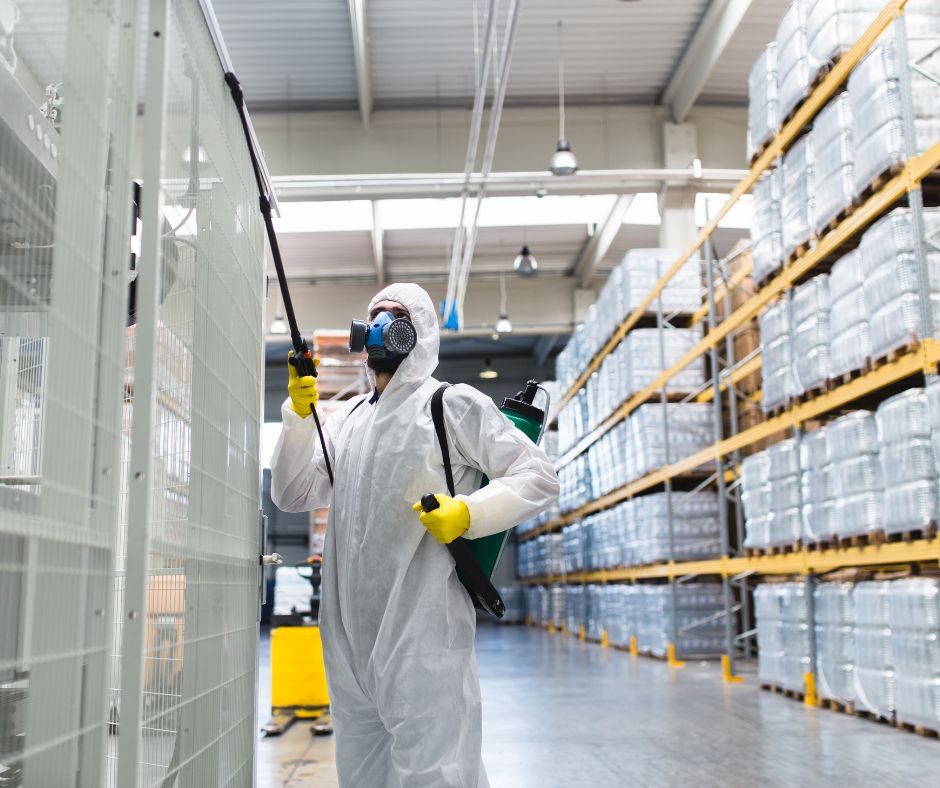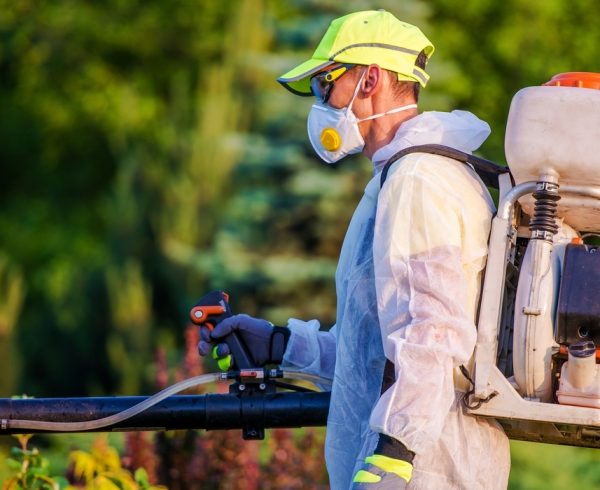Reveal the Relevance of Bug Control in Preserving a Healthy Environment and Therapy Strategies
Bug control plays a critical function in guarding not just human health and wellness yet additionally the fragile equilibrium of our ecological communities. As we explore the implications of insect control methods, it becomes necessary to consider both the instant advantages and the lasting sustainability of our atmosphere.
The Duty of Insects in Communities
Insects, usually seen only as nuisances, play a multifaceted function in ecological communities that is essential for keeping environmental balance. They add significantly to different eco-friendly processes, consisting of pollination, nutrient cycling, and pest control. Numerous insect varieties, such as and butterflies, are vital pollinators for a broad array of plants, which in turn supports biodiversity and food manufacturing.
Additionally, parasites function as target for numerous predators, creating an important link in food webs. This interdependence ensures the survival of numerous varieties and aids control populations within ecological communities. In addition, decomposer bugs, such as specific beetles and fungi, contribute in breaking down natural issue, therefore enhancing soil and assisting in vitamins and mineral recycling.
Alternatively, while pests can be advantageous, their overpopulation or invasion into non-native environments may disrupt these eco-friendly functions. This complexity highlights the relevance of understanding insect characteristics, as reliable pest administration techniques should consider both their eco-friendly functions and potential effect on human activities. Balancing pest existence while lessening damage is crucial for maintaining the stability of environments and making sure agricultural productivity.
Wellness Threats Connected With Pests

The visibility of bugs in various settings prolongs past their ecological functions, as they also pose substantial wellness threats to people and animals. Several bugs, consisting of rats, insects, and bloodsuckers, are providers of conditions that can have serious wellness implications. Rodents are known to transmit hantavirus and leptospirosis, both of which can lead to severe respiratory and renal problems, specifically.
Pests such as mosquitoes and ticks are notorious for spreading vector-borne illness like malaria, dengue fever, and Lyme illness. These diseases can result in high morbidity and mortality rates, especially in susceptible populations. Additionally, pests like roaches and vermins can worsen allergies and asthma, adding to respiratory troubles in people, particularly those with pre-existing conditions.
Furthermore, the visibility of parasites can bring about emotional tension and discomfort, impacting general wellness. Contamination of food and surfaces by insect droppings and stays can lead to foodborne ailments, highlighting the value of maintaining hygienic conditions - Pest Control in Port Charlotte, FL. Therefore, recognizing the wellness dangers connected with bugs is important in recognizing the requirement of effective parasite administration techniques to safeguard my response human and animal health and wellness.
Benefits of Reliable Insect Control
Effective parasite control is necessary for keeping a healthy and balanced and secure setting, as it constantly alleviates the many risks connected with insect invasions. One of the main benefits of efficient insect administration is the decrease of health and wellness hazards.

Another substantial advantage is the renovation of overall top quality of life. A pest-free environment adds to mental wellness and reduces anxiety related to problems. Effective parasite control fosters a much safer environment for kids and animals, ensuring that homes continue to be sanctuaries totally free from unsafe chemicals and disease-causing organisms.
Typical Bug Control Strategies
In the realm of bug monitoring, various techniques are employed to deal with problems effectively. These techniques can be extensively classified into 3 major techniques: cultural, mechanical, and chemical controls.
Cultural control involves customizing techniques to decrease bug establishment, reproduction, and survival. This might consist of plant rotation, proper sanitation, and habitat manipulation, which collectively develop a setting much less conducive to pest proliferation.
Mechanical control employs physical methods to remove parasites. Strategies such as catches, obstacles, and vacuums are generally made use of to straight eliminate insects from an area. This technique is especially efficient for handling rodents and bugs without making use of harmful chemicals.
Chemical control involves the application of pesticides to take care of parasites. These materials can be categorized right into pesticides, herbicides, and fungicides, each targeting particular types of bugs. It is crucial to use these chemicals deliberately, adhering to safety and security guidelines and laws to decrease potential harm to non-target basics types and the atmosphere.
Each bug control strategy has its advantages and restrictions, and usually, an integrated strategy incorporating numerous approaches generates the very best lead to keeping a pest-free atmosphere.
Lasting Bug Management Practices

Integrated Insect Administration (IPM) is a foundation of sustainable techniques, combining biological, social, mechanical, and chemical strategies to handle bugs. For example, organic navigate to this website control entails presenting all-natural killers or bloodsuckers to suppress insect populaces. Cultural methods, such as plant turning and polyculture, interfere with pest life cycles and improve ecosystem durability.
Mechanical approaches, such as traps or barriers, can properly prevent parasite accessibility without chemical treatment (Pest Control in Port Charlotte, FL). Additionally, keeping healthy and balanced ecological communities through appropriate dirt monitoring, plant wellness, and biodiversity can normally mitigate pest issues
Education and understanding are crucial parts, encouraging people and areas to recognize pest risks early and execute safety nets. By promoting an alternative strategy that stabilizes parasite control with eco-friendly honesty, lasting pest monitoring methods not just safeguard crops and frameworks yet additionally contribute to a much healthier setting for future generations.
Final Thought
Efficient pest control is important for safeguarding public wellness and preserving eco-friendly equilibrium. By comprehending the duty of parasites, acknowledging involved health risks, and employing varied treatment techniques, a sustainable approach to pest monitoring can be achieved. Integrated Parasite Management (IPM) stresses a holistic method that reduces injury to beneficial microorganisms while efficiently regulating insect populaces - Pest Control in Port Charlotte, FL. Ultimately, accountable parasite administration cultivates a healthier setting, promoting both human wellness and the honesty of ecological communities.